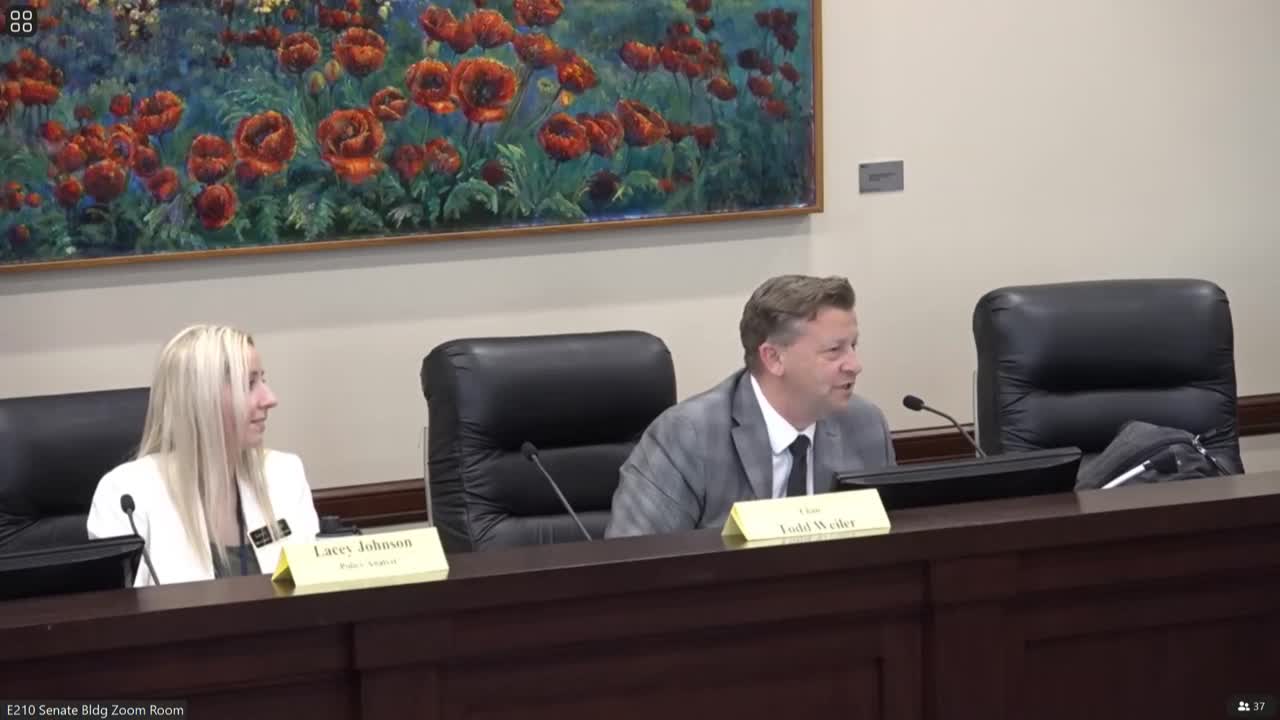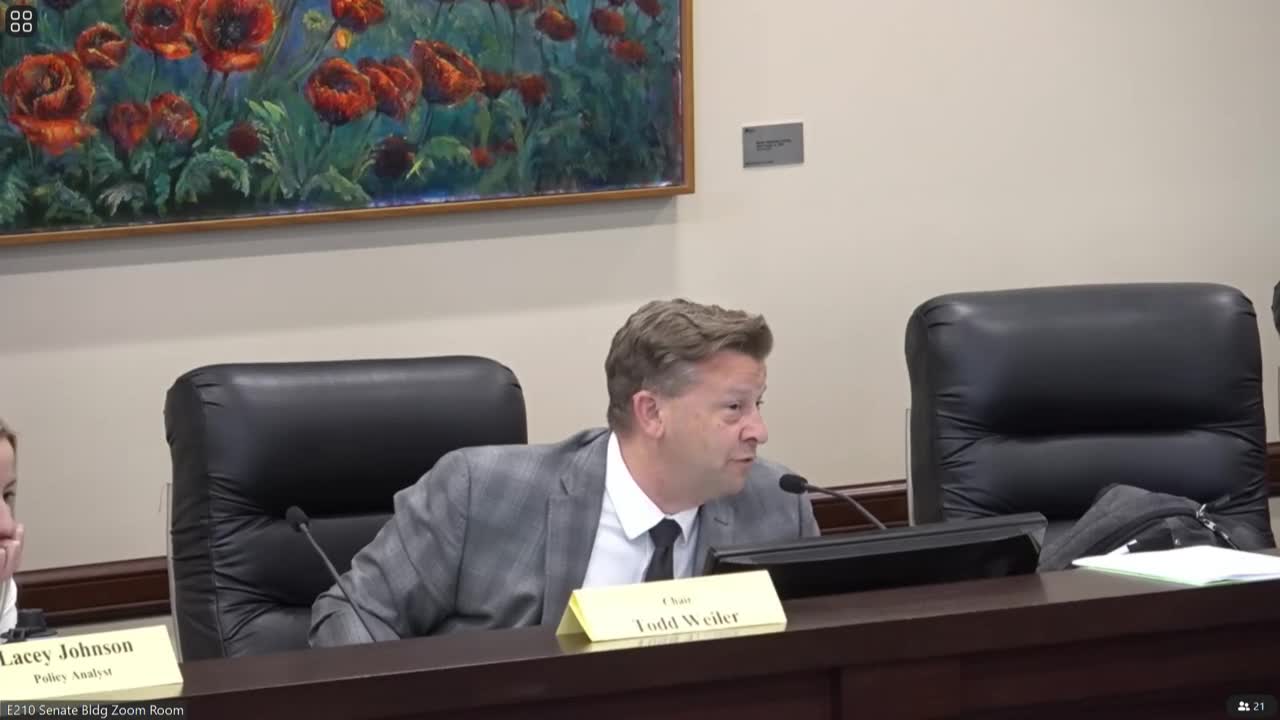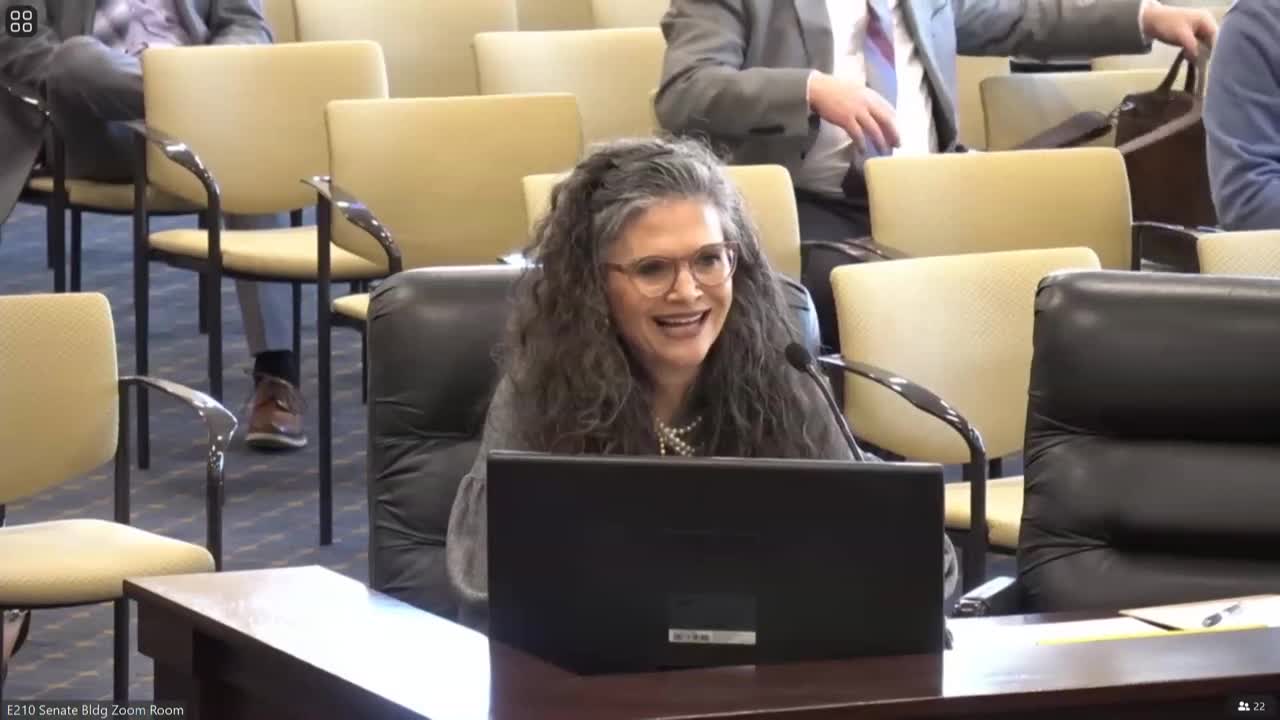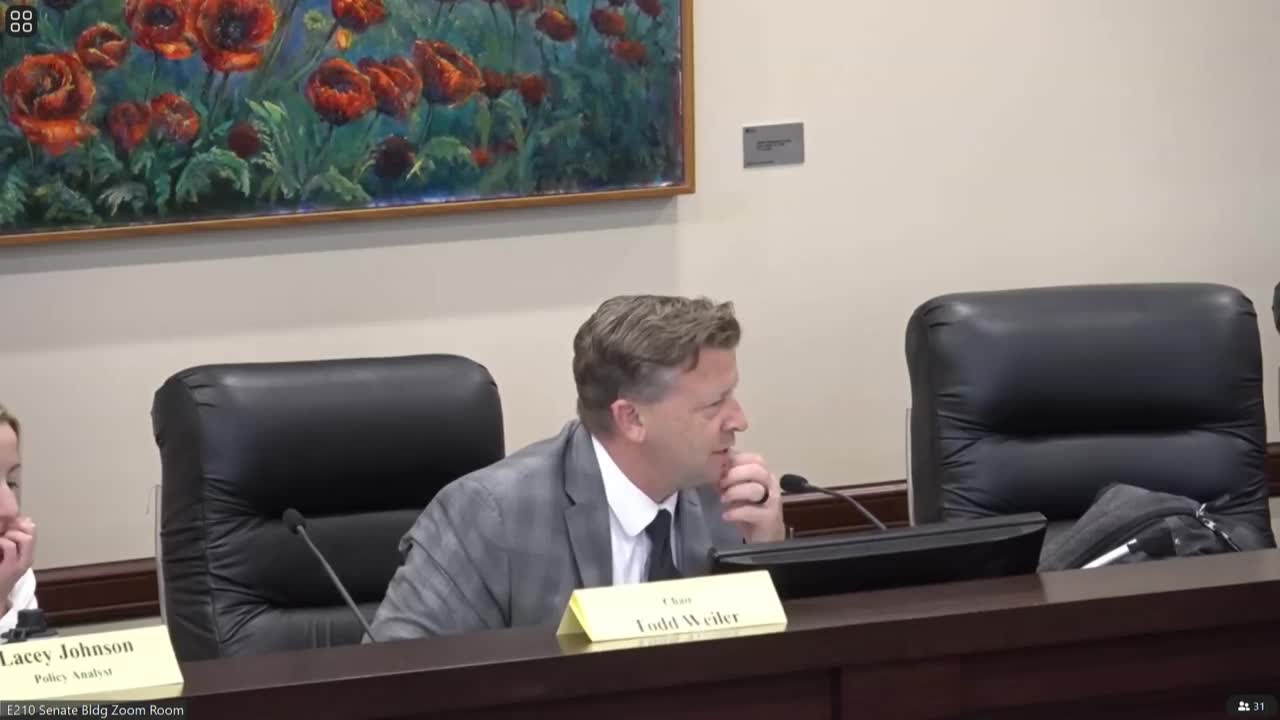Article not found
This article is no longer available. But don't worry—we've gathered other articles that discuss the same topic.

Senate committee advances bill defining child torture as first-degree felony with 10-year minimum

Senate panel debates criminalization of sexual activity between care providers and patients; disability advocates urge changes

Committee expands protections for police service animals to include other public‑safety animals

